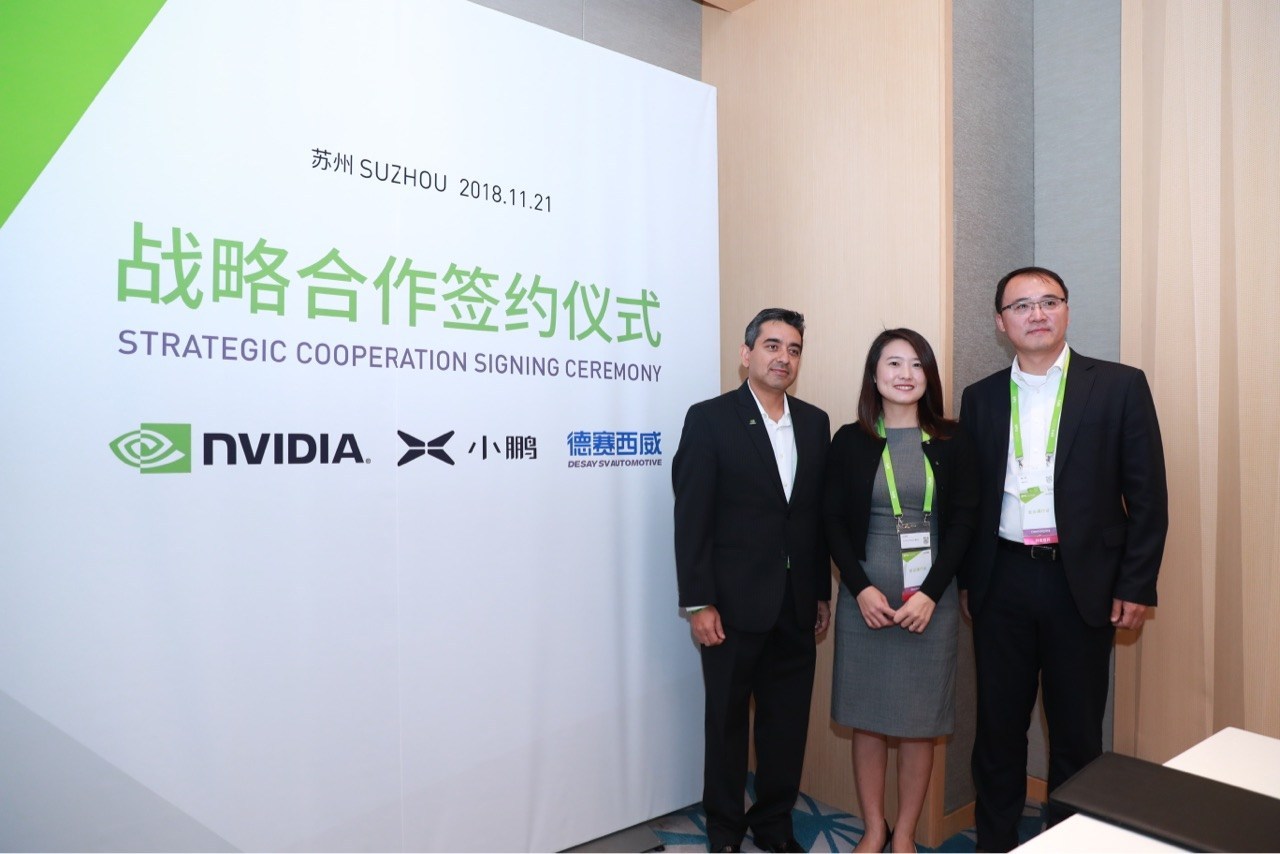Chinese autonomous vehicle developer XPENG Motors has announced a strategic partnership with NVIDIA and its China partner Desay SV for developing Level 3 autonomous driving technology tailored for the driving environment in China.
XPENG Motors will self-develop the software for China's typical traffic conditions and user scenarios and will work with Desay SV to jointly develop the computing hardware platform for autonomous driving. The company plans to implement in various phases the L3 intelligent driving features in its new models starting in 2020.
In addition to partnering in hardware development, the three companies will also work extensively on data collection and benchmarking, software development and cloud-based machine learning.
Xavier is the latest AI supercomputing system-on-chip (SoC) released by NVIDIA in early 2018. It is the world's first autonomous driving processor and the most complex system-on-chip (SoC) ever created.

(Image: XPENG Motors)
The scalable NVIDIA DRIVE AGX AI automobile computing platform, built on Xavier, is capable of powering advanced Level 2+ driver assistance systems through robotaxis. The system processes data collected from an array of radar, LIDAR, camera and ultrasonic sensors in real-time. NVIDIA DRIVE AGX Xavier is capable of 30 trillion operations per second while consuming merely 30 watts of power, and is equipped by six different processors on the SoC, including a high performance GPU, custom 8-core CPU, a deep learning accelerator and a programmable vision accelerator.
"Our mission is to lead the innovation of intelligent vehicles and make them widely available for Chinese consumers. We are very excited about working with the world's leading players in this field and are confident that this partnership will accelerate our technology advancement," said Dr. Gu Junli, Vice President of Autonomous Driving at XPENG Motors.
"Independent research capability is one of our core competences. Understanding China's specific user scenarios is critical in developing smart driving solutions for Chinese consumers, and we strive to provide them with the best driving experience," she added.












